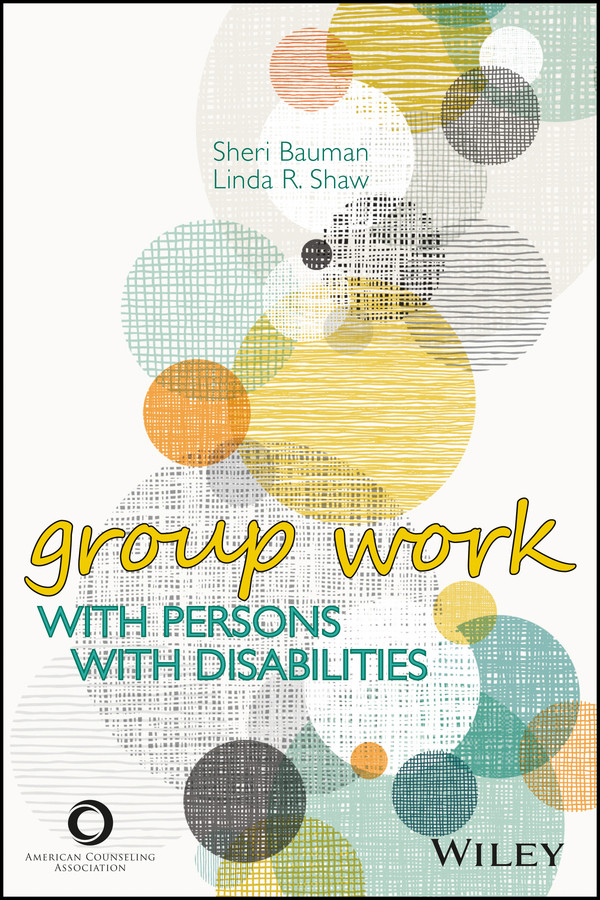(Ebook PDF) Group Work With Persons With Disabilities 1st Edition BY Sheri Bauman ISBN 9781119292111 1119292115 FULL CHAPTERS
$50.00 Original price was: $50.00.$35.00Current price is: $35.00.
(Ebook PDF) Group Work With Persons With Disabilities 1st Edition BY Sheri Bauman-Ebook PDF Instant Download/Delivery:9781119292111, 1119292115
Instant download Full Chapter of Group Work With Persons With Disabilities 1st Edition after payment

Product details:
ISBN 10:1119292115
ISBN 13:9781119292111
Author: Sheri Bauman
This one-of-a-kind manual provides direction for leading groups of people with disabilities or groups that have members with disabilities. Viewing disability as a single aspect of a multifaceted person, Drs. Bauman and Shaw share their insight and expertise and emphasize practical skill building and training for facilitating task, psychoeducational, counseling, family, and psychotherapy groups across various settings.
Topics examined in Part I include common themes in groups that focus on disability; various group formats, including groups using technological platforms; issues of diversity that exist simultaneously with ability; group composition; ethical concerns; and training considerations and logistical accommodations. Part II focuses on group counseling with clients experiencing sensory, psychiatric, cognitive, and physical disabilities as well as chronic medical conditions. A list of resources, support information, and group exercises completes the book.
Table of Contents:
- Part I: General Principles
- Chapter 1: Introduction
- Definitions and Frameworks
- Client Rights
- Importance of Groups for Persons with Disabilities
- Organization of this Book
- Part I
- Part II
- Part III
- Key Terms
- Recommendations for Practice
- Chapter 2: Common Themes
- Models of Disability
- Cultural Views
- A Model of Adaptation
- Frequent Topics in Groups that Include Persons with Disabilities
- Social Relationships and Dating
- Sexuality
- Overprotection
- Abuse
- Maintaining Health
- Substance Abuse
- Accessibility Issues
- Key Terms
- Recommendations for Practice
- Chapter 3: Types of Groups
- Self-Help Groups
- Online Self-Help Groups
- Support Groups
- Counseling Groups
- Psychoeducational Groups
- Family Groups
- Group Therapy
- Theoretical Approaches
- Psychodynamic Approach
- Humanistic Approaches
- Cognitive Behavior Approaches
- Key Terms
- Recommendations for Practice
- Chapter 4: Diversity Issues
- Disability and Multiple Minority Status
- Intersectionality
- Cultural Differences Regarding Disability
- Multiple Identities and Mental Health
- Multiple Identities and Group Work
- Summary
- Key Terms
- Recommendations for Practice
- Chapter 5: Group Composition
- The Facilitator
- Structural Aspects
- Size
- Setting
- Length and Duration
- Homogeneous or Heterogeneous Groups
- Summary
- Key Terms
- Recommendations for Practice
- Chapter 6: Ethical Considerations
- Group Composition: Choosing Inclusion Versus Exclusion
- Informed Consent
- Confidentiality and Socializing
- Online Groups
- Summary
- Key Terms
- Recommendations for Practice
- Chapter 7: Training Considerations
- Raising Awareness
- Awareness Group
- Simulations
- Legislation
- Americans With Disabilities Act
- Section 504 of the Rehabilitation Act
- General Etiquette
- Responsibilities of Facilitators
- Key Terms
- Recommendations for Practice
- Part II: Specific Disabilities
- Chapter 8: Sensory Disabilities
- Loss of Vision and Blindness
- Groups for Children and Adolescents
- Deaf and Hard of Hearing
- Groups for Children and Adolescents
- Parent Groups
- Summary
- Key Terms
- Recommendations for Practice
- Chapter 9: Psychiatric Disabilities
- Serious Mental Illness
- Definitions
- Group Work with SMI Clients
- One Clinician’s Perspective
- Therapist Characteristics
- Specific Strategies
- Theoretical Perspectives
- Posttraumatic Stress Disorder
- Types of PTSD Groups
- Substance Use Disorders
- Summary
- Key Terms
- Recommendations for Practice
- Chapter 10: Cognitive Disabilities
- Intellectual Disabilities
- Autism Spectrum Disorder (ASD)
- Traumatic Brain Injury
- Dementia
- Rationale for Group Work and Types of Groups
- Addressing the Needs of Group Members with Cognitive Disabilities
- Planning the Group
- Group Composition
- Simple Is Better
- Involve Caregivers
- Group Structure
- Facilitator Responsibilities
- Summary
- Key Terms
- Recommendations for Practice
- Chapter 11: Physical Disabilities
- Orthopedic Disabilities
- Neuromotor Disorders
- Amputation
- Spinal Cord Injuries
- Congenital Versus Acquired Disabilities
- Group Considerations
- Group Composition and Screening
- Topics or Themes
- Summary
- Key Terms
- Recommendations for Practice
- Chapter 12: Chronic Health Conditions
- Diabetes
- Epilepsy
- HIV Infection
- Considerations for Group
- Planning the Group
- Facilitator Responsibilities
- Topics
- Summary
- Key Terms
- Recommendations for Practice
- Part III: Resources
- Chapter 13: Recap and Conclusions
- Recommendations for Practice
- Chapter 14: Exercises and Resources
- Who am I?
- Sentence Stems
- First Impressions
- Autobiography
- Empty Chair
- Group Tasks
- Adjectives
- Feedback
- Self-Disclosure
- Sources of Activities
- Resources
- Group Work
- General Disability Information
- Specific Disabilities
- Books
- Online Materials
People also search:
aca group counseling
aca definition of small group
aca group therapy
aca disability
aca group benefits
Tags:
ACA Group,Persons,Disabilities,Sheri Bauman


